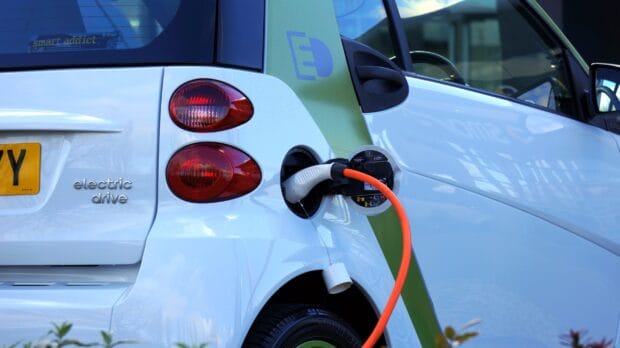Rich said access to electric vehicles (EVs) and their corresponding charging stations is an important investment for Arizona and federal governments to make. || Photo by Pexels
By Shane Brennan || Arizona Capitol Times
The future looks bright for electric vehicles in Arizona, says Court Rich, the co-founder, senior partner, and director of the Renewable Energy and Regulatory Law departments for the Rose Law Group in Scottsdale.
Rich fought legal battles against utility companies to ensure greater access for rooftop solar panels.
In 2019, he represented a solar energy facility in a case that was voted on by the Arizona Corporation Commission, where the ACC voted unanimously for utility companies to buy energy from the solar power companies. He has also represented electric vehicle companies, including Tesla.
Rich said access to electric vehicles (EVs) and their corresponding charging stations is a worthy investment for the state and federal governments. The continued growth in use of electric vehicles, as well as an increasing number of electric vehicle charging stations, will benefit the state similarly to how solar energy did over the past decade, he said.
In the past couple of decades, how much has solar energy grown in Arizona?
“The growth has been explosive, and I think there’s two key reasons for that. One is that the price has come down dramatically, and then the second reason is that people like clean energy. So those two things combined over time to just increase its popularity and increase the economic advantage of solar energy.”
What kind of resistance did you meet in Arizona to the expansion of solar energy?
“We continue to face the resistance, but the number one source of the resistance is the monopoly utilities in the state. Solar is freedom, it’s choice, it’s competition, it’s controlling your own destiny, and we’re talking about rooftop solar. Every one of those things is bad if you’re a monopoly utility … And any chance you have to provide your own energy diminishes how much energy you need to buy from the utility. That’s bad for their business. I don’t blame them for the positions they’ve taken. But they have been the number one source of trying to stop, trying to slow, frustrate, increase costs, just altogether make it more difficult for Arizonans to go and put solar on their rooftop, put a battery in their garage or power the business with solar.”
What is the most recent challenge that you’ve faced in terms of solar energy and renewable energy in general?








